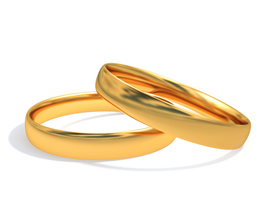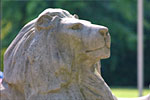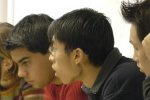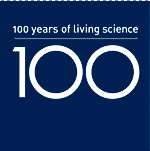Neville Rhoden
(Mining Geology, 1953; PhD, 1958)
shares his post war experiences at Imperial
 NR My time here was a little different from what you have now. The reason for that is that it was not long after the Second World War, when I was a teenager; we heard the bombs coming down. I came out of school in 1947, with what was known as A-levels but then in those days we had to do military service for two years, so I went off into the Army for two years. And I was glad, because I passed from being a schoolboy to being a man. I was a soldier for two years. Not an officer, a soldier. And therefore when I came here in 1947 there was a special course for ex-military people to catch up, which I did, and then three years in College.
NR My time here was a little different from what you have now. The reason for that is that it was not long after the Second World War, when I was a teenager; we heard the bombs coming down. I came out of school in 1947, with what was known as A-levels but then in those days we had to do military service for two years, so I went off into the Army for two years. And I was glad, because I passed from being a schoolboy to being a man. I was a soldier for two years. Not an officer, a soldier. And therefore when I came here in 1947 there was a special course for ex-military people to catch up, which I did, and then three years in College.
But of course many of the professors had come back from being officers in wartime, so we were much more equal. So we were perhaps in those days, a slightly more adult community than you have now. Much less party involved, people were desperate to escape from school or wartime conditions and to get a job and to marry and get forward and we were a little bit perhaps more serious than now. But things were more primitive and so yes, we had social occasions of course. There were many clubs, I think all the clubs you have now existed then and so on, but I belonged to various, not much of importance. Amongst other things I met my wife here…
Interviewer: How was that?
NR Well, she was a student in the Zoology department doing a BSc and when she graduated, we married. So I married my student sweetheart. We've been married for 52 years. When my wife and I were engaged, and this was in the early 1950’s, we were College boy and girlfriend. It was during the coronation of the Queen and we slept for three nights up on that big boulevard in front of Buckingham Palace, so that we would be on the front row and see the coronation.
Imperial College now a hugely impressive organisation, hugely impressive. But there is a difference from when I was here and it was given in the Rector’s talk, I suppose it was the day before yesterday, in which he was saying there are 8,000 students, I think he was saying 8,200 students, and over a thousand of those are foreign students. The biggest contingents are the Chinese or the Indians, or Thais, and so on and so on. And I think that’s a good thing, that’s a very good thing, I'm all in favour. We didn’t have that in my day.
© 2007 Imperial College London

Through the first decade of the twenty-first century the campaign seeks to philanthropically raise £207 million from Imperial’s alumni, staff and friends, and donations from charitable foundations and industry.
Where your support can make a differenceGive now

Imperial’s Centenary Year provides an opportunity to recognise and celebrate members of the Imperial community.
View staff and student portraits
